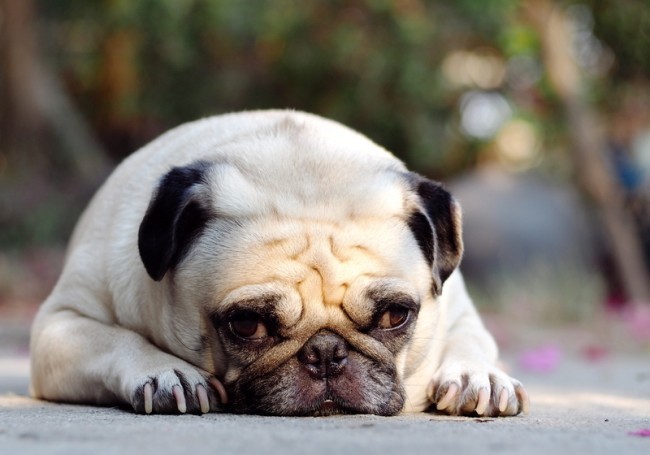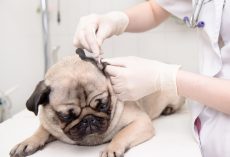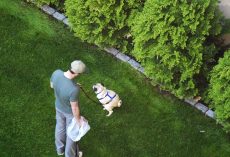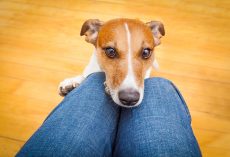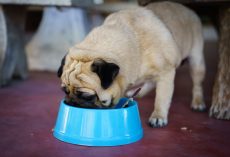There are a few different way for your doggie to get Colitis, including injury and infection. It has even been said that a pet’s diet, even if it is prepared with love and attention, can cause the dreaded condition! Luckily there are some things you can do about it and if you think your pooch has this condition, it's best to take him to the vet to find out for certain. Then you get a treatment in place!
Diagnosing Colitis
Your veterinarian will perform a physical exam including abdominal palpation (feeling the abdomen). Bloodwork, including a complete blood count (CBC) and serum biochemistry profile will be performed, as well as a urinalysis.
A stool sample will be examined for GI parasites. A stool sample should also be sent out to a laboratory for polymerase chain reaction (PCR) testing to check for the presence of campylobacter, clostridium, giardia, salmonella, corona, and parvovirus for dogs, and tritrichomonas and panleukopenia for cats.Abdominal x-rays may reveal masses or tumors in the GI tract, fecal impaction, thickened large intestinal tissues or other abnormalities.
If symptomatic treatment doesn’t resolve the problem, the most useful procedure for identifying the underlying cause of colitis is a colonoscopy that can be used to remove tissue samples from different areas of the lining of the colon. The camera at the end of the scope allows your veterinarian to visualize the lining of the colon to check for areas that appear abnormal.
Treatment Options
Treatment of colitis requires identifying and resolving the underlying condition(s) that are causing inflammation of the colon. To deal with the symptoms of colitis in an otherwise healthy pet, a common approach is to fast your dog or cat for 24 hours. As long as you have a healthy, vibrant pet that just has sudden diarrhea, fasting for 24 hours is fine. You never withhold water, however, just food. Then you slowly reintroduce a bland diet.I recommend a bland diet of canned pumpkin and cooked turkey rather than the traditional rice and ground beef diet that many veterinarians recommend. With the canned pumpkin/cooked turkey diet, there are fewer carbohydrates and less sugar for abnormal gut flora to use as a food source. It’s also species-appropriate for dogs and cats.
The bland diet should be followed by a low-residue novel protein diet, especially if food allergies or sensitivities are suspected. The best way to determine what not to feed a pet with a suspected food allergy is Dr. Jean Dodds’ NutriScan test, which uses a saliva sample to accurately determine which foods your pet could be sensitive to.
There are a number of homeopathics, herbs, nutraceuticals, and different probiotic strains I use regularly that are very helpful in reducing GI inflammation. Certain procedures such as a fecal transplant can also be extremely beneficial. Whether therapies are introduced before, during, or after dietary change depends on your pet’s specific issues. Changing too many things at once can make symptoms worse.
Professional guidance is often needed to walk pet parents through the process, especially if you have a cat or dog that is hypersensitive and no matter what you do it tends to make the diarrhea worse. Often in these cases, we need to investigate the possibility of leaky gut syndrome (dysbiosis).
Most chronic dysbiosis patients need professional help. They need a veterinarian or other healthcare professional who is skilled in treating each patient as an individual, taking into consideration the animal’s breed, age, gender, and lifestyle stressors.
In my opinion, an integrative veterinarian is your best bet for identifying and treating the root cause of dysbiosis. Holistic and integrative vets have experience using healing protocols for colitis and leaky gut that conventional vets simply aren’t aware of, because alternative therapies aren’t taught in veterinary school.
While resolving your doggie’s colitis is a challenge you should never give up because there are treatment options. The one that works for your best friend is out there just keep looking!
To read more go over to Healthy Pets. Once there you will learn about the latest drugs and other procedures, including lifestyle changes, that will keep your pooch from feeling the pain of Colitis.

